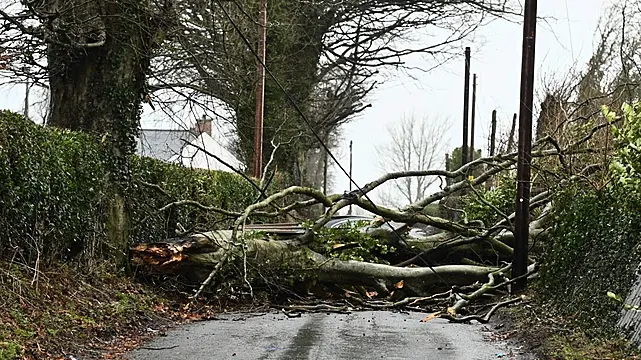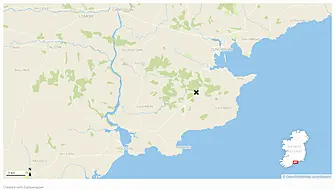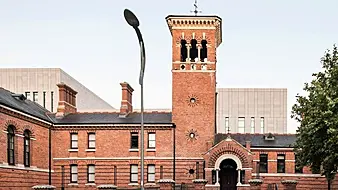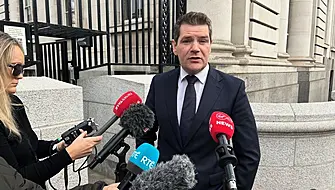An Independent TD has called on the Government to "send out" the Army help the elderly and most vulnerable in society who are still without power after Storm Éowyn.
There were about 142,000 premises still without power on Wednesday after hurricane-force gusts hit some areas during the storm on Friday morning. Many households have been told their electricity may not return until next Wednesday.
Uisce Éireann said about 16,000 people remain without a water supply, as of Wednesday morning.
Michael Fitzmaurice, the TD for Roscommon-Galway, told RTÉ's Today with Claire Byrne that Uisce Éireann should have been better prepared for the storm and that the utility needed to "cop on".
Mr Fitzmaurice also said it was "ferociously disappointing" that local authorities in some parts of the country did not allow staff out to work at clearing up until after 4pm on Friday.
He said the Government should establish a grant scheme so people could buy generators to have on standby for future events. Mr Fitzmaurice said he had an old generator and it allowed the heating to turn on and the fridge to work.
Many small businesses and GP surgeries would be able to function now if they had a generator, he claimed.
"I spoke this morning to a doctor in Ballaghaderreen that cannot basically function because they have no computer," he said. "The place is freezing. Even if someone is sick this minute, they cannot operate."
Mr Fitzmaurice added that there are many vulnerable people in society who needed power to care for sick family members at home. "If you're at home and you have a hoist and a hospital bed, you need to be able to use that. A small generator is required to help with that."
Margaret Attridge, Uisce Éireann’s head of water operations, said the 16,000 people still without water on Wednesday morning equated to 6,000 houses and was down from a high of 200,000 people in the immediate aftermath of Storm Éowyn.

The majority of those without water are in the northwest, she told RTÉ’s Morning Ireland. She said there were generators maintaining supply to another 120,000 people.
Ms Attridge said alternative supplies in the form of tankers are being provided in areas where there are vulnerable people and people who cannot get out to collect water for themselves.
She went on to explain that Uisce Éireann has backup generators at the four largest water treatment plants that supply water for 2.5 million people, but they did not have generators for all the “8,000 assets” around the country, all of which require power.
A generator installation programme has been progressing in recent years, she said. But many of the plants needed to be made more resilient and there was a plan in place to rationalise smaller schemes into larger more secure treatment plants.







